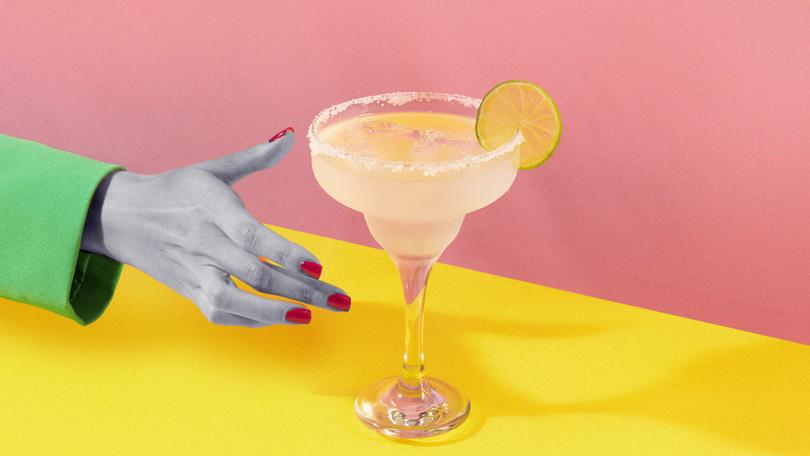THE ECONOMIST: Why people over the age of 55 are the new problem generation
Risky drinking by baby boomers is on the rise. The sex, drugs and rock‘n’roll generation are now the most likely Australian generation to drink at dangerous levels.

The words “retirement community” summon up images of easy chairs, overcooked food and endless daytime TV.
Latitude Margaritaville, a community being built near Hilton Head Island in South Carolina, quickly disabuses these.
“There was a toga party this past weekend,” says Lynette, a resident.
Sign up to The Nightly's newsletters.
Get the first look at the digital newspaper, curated daily stories and breaking headlines delivered to your inbox.
By continuing you agree to our Terms and Privacy Policy.“There was a live band, and it was a riot.”
Barbie, another of the community’s “ambassadors” (residents employed by the developers to help sell it to potential newcomers), compares living there to “starting college all over again”.
There are, she says, “drinks on the driveway, cocktails on the concrete”.
If Margaritaville’s residents are representative of their age cohort, there will be a lot more to the toga parties than fancy dress.
Whereas young people in rich countries these days are addicted to their phones, more anxious than previous generations and far less likely than them to use mind-altering substances or to party recklessly, their grandparents belong to a generation that experimented with sex, drugs and rock’n’roll.
As they reach older age, they are not giving up their old habits.
Among those for whom time’s winged chariot is hurrying a little nearer, drug and alcohol use—and abuse—have surged.
And since many have also long since struck coyness from the statute books, sexually transmitted diseases are also spreading.
The prevalence of gonorrhoea, to name but one, among Americans aged 55 and up has increased by more than six times since 2010.
“Today, older adults are more likely to participate in the hookup culture of casual encounters and condomless sex, which might be further encouraged by the availability of drugs for sexual dysfunction, the commonality of living in retirement communities, and the increased use of dating apps for seniors,” noted Janie Steckenrider in a paper in the Lancet.
Similar increases are evident elsewhere.
Though in the four years to 2023, the number of new syphilis infections among young adults in England fell slightly, cases in those over the age of 65 grew by 31 per cent.
That is despite it having already shot up in the previous five years. (Happily this trend does not apply to HIV, the number of new infections of which is falling globally.)
In the past, revolutionary and reckless youth worried politicians.
These days the oldest strain public services, wreak havoc on national politics and account for a growing share of social problems.
Elderly revellers are numerous: the number of people over 65 is growing across the rich world.
In Britain they are more than a fifth of the population.
And they want to have fun.
In a way, those over the age of 55 but under the age of 75 — roughly speaking, the baby-boomers and some of what is referred to as “Generation X” — are the new problem generation.
What makes them so reckless?
For one thing, there’s the attitudes to drink, drugs and sex.
In the two decades to 2023 the proportion of people aged 18 to 34 in America who “ever have occasion to use alcoholic beverages” declined from 72 per cent to 62 per cent, according to Gallup, a pollster.
Yet among those over 55 alcohol use increased to 59 per cent from 49 per cent.

Similar trends are visible almost anywhere you look across the rich world.
“While younger Australians are drinking at less risky levels, there’s been a significant increase in risky drinking by older Australians,” reported the Alcohol and Drug Foundation, an Australian charity, in 2022.
Such has been the shift that older Australians are now more likely to drink at dangerous levels than people in general.
In France alcohol consumption has dipped among all groups in recent years.
But it is the young who are forsaking it the most.
“There is a loss of wine transmission within families,” complained Bernard Farges, the head of France’s wine-producers industry group, in an interview with Les Echos, a financial newspaper.
What applies to alcohol also applies to other mind-altering substances.
In America cannabis use has risen sharply among older cohorts — perhaps unsurprisingly, given that it is now legal in a majority of states and the baby-boomer generation used cannabis the most when they were young. (Both Barack Obama, a member of a high-school “Choom Gang”, and more recently, Kamala Harris, have admitted extensive youthful use.)
But the trend is almost as dramatic elsewhere.
In Spain the share of people aged 55-64 who report having used cocaine in the past year has increased eight-fold in 15 years.
In England people well into their 50s are “getting back on it like they used to” at festivals, says Fiona Measham, an academic at the University of Liverpool who studies drug and alcohol use.
Then there’s sex. Divorce rates in the rich world are generally falling (in large part because far fewer people are getting married in the first place, and those who do tend to wait until they have found a good match).
But they are rising among pensioners.
In 2022 more Japanese couples divorced after at least 20 years of marriage than ever before, even though the rates have declined among younger groups.
More than one in four Americans over the age of 60 lives alone.
That does not, however, necessarily mean that they are having less sex.
One study from the Netherlands found that the percentage of people over the age of 75 who report being sexually active leapt from 16% in 2014 to 27% less than a decade later.
Sexy oldies
The behaviour of the boomers stands in striking contrast to that of their children, who are proving surprisingly tranquil.
But this is a generation that has always been chaotic.
On both sides of the Atlantic, the baby-boomers and then Generation X were born to parents who had rushed out of war and into prosperity in the 1950s and 1960s, marrying young, having children early and raising them with a bare minimum of attention.
They grew up breathing the fumes of leaded petrol (long associated with impulsive behaviour) and watching social mores collapse.
They had access to contraception, abortion and pop music.
More subtle trends may also be in play.
For a start, those retiring today are far richer than in the past.
In 1993 just over half of people over the age of 65 in Britain owned their homes outright. Now three-quarters do.
Second, they now have fewer responsibilities.
From the 1970s onwards, as female participation in the labour market increased, grandparents took on more child care.
But in the past decade birth rates have plunged, meaning more older people have no children or grandchildren at all.
And those who do may be expected to do less now than in the past.
Paid-for child care has expanded and in some countries the government provides subsidised nursery places.
In the Netherlands, for example, just 2 per cent of grandparents report having to do “intensive” child care. That leaves more time for boozing.
What are the consequences of all this?
When youthful excess is rising, it is often seen as a symbol of social decline.
Fewer people worry about their ageing parents being wreckheads than the other way round.
Similarly, government surveys of drinking, gambling, smoking and the education campaigns intended to stop it focus on youth.
America’s Substance Abuse and Mental Health Services Administration, which surveys drug use in that country, splits its studies into two groups: under 25s and the rest.
But in fact, as viewers of “Shameless”, a TV show set in Chicago (though based on a British show) about a middle-aged drunk, can plainly see, the carefree life comes at a cost, for individuals and for society at large.
Newly single old people — perhaps those attending the toga parties at Margaritaville — may need to be reminded, or perhaps even told for the first time, how easily infections can spread.
“Folks are connecting in loving relationships and, quite honestly, in hookups,” says Imara Canady, of the AIDS Healthcare Foundation, a charity which recently launched an advertising campaign encouraging older people to get tested for HIV and other sexually transmitted diseases.

Middle-aged drug taking has consequences, too.
In England and Wales deaths of people over 50 made up more than a third of all drug-misuse deaths in 2022, up from just 13 per cent two decades before.
Many of those dying come from a thinning cohort of ageing heroin addicts, who have been using for decades. But not all.
Deaths caused by cocaine are now far more numerous among the old than among the young.
No fewer than 38 people over the age of 50 died from overdosing on ecstasy — a drug usually associated with teenage rave culture — in the four years to 2022.
Ms Measham from the University of Liverpool also runs a charity that provides testing kits for people to make sure their illegal drugs are not contaminated.
She says older ravers are often less careful than the young.
“Younger people are seeking information or advice,” she says.
“Older people clearly don’t think they need to.”
Infection and early death are only some of the more obvious problems.
A minority of the reckless old are causing more direct mischief themselves: they make up a growing proportion of people arrested and convicted of crimes.
It is well known that America’s prisons are increasingly full of older inmates.
What is less well understood is that this is not entirely due to inmates ageing inside.
Older people make up a larger share of newly convicted criminals these days, too.
From 1992 to 2022, among men arrested, the share over the age of 50 tripled, from 5 per cent to 15 per cent, according to data from the FBI.
In absolute terms, the number increased by nearly 40 per cent, even as arrests of other age groups tumbled. Similar trends are seen in other countries.
Older folk seem in some ways more prone to political violence, too.
A generation ago, the idea of pensioners rampaging was laughable.
But when anti-immigration riots broke out across England in August 2024, one of those arrested in Liverpool was William Nelson Morgan, a 69-year-old grandfather.
At his court hearing, it was recounted that he shouted at officers arresting him: “I’m fucking 70.”
The police officer retorted: “Well, why are you at a fucking riot?”
Similarly, of those arrested and charged after the riots in Washington, DC, on January 6 2021, almost half were older than 40, and the oldest was 81.
Of the women arrested (a smaller number) fully a third were in their 50s, far outnumbering any other age group.
Perhaps this is because baby-boomers tend to be an unhappy lot.
Surveys suggest that they are more pessimistic about the future than the young almost everywhere.
People have always grown more pessimistic as they age, yet there is reason to think this generation is especially — and weirdly — glum.
A study by Pew, a think-tank, published a decade ago found that “When it comes to quality-of-life assessments, data suggest the boomers generally have been downbeat, compared with other age groups, for the past two decades.”
The more recent data do not seem to mark improvements.
Moreover, some rather harder data suggest the baby-boomers (and Gen X) are in essence miserable generations.
British figures show, for example, that in the decade to 2023, suicide rates rose sharply for those aged 45 to 65, while falling for those older and younger.
Clearly, not everyone is thriving in old age.
Although baby-boomers are doing financially well in aggregate — they own half of the wealth in America, according to the Federal Reserve — many are feeling a pinch.
People over 60 in America account for more than a quarter of foreclosures, up from just one in ten 20 years ago, and there has been a similar rise in bankruptcies, data from the New York Fed show. All of those divorces are expensive.
And the flip side of having to do less baby-sitting of grandchildren is that there are fewer youngsters around to help keep grandma and grandpa company.
“Isolated and lonely older adults have longer stays in hospitals as well as higher emergency hospitalisation and re-hospitalisation rates and are more likely to be admitted earlier into residential or nursing care,” reported a study published by the European Centre for Social Welfare Policy and Research, a Vienna-based think-tank, in 2022.
Toga and tonic
It is all enough to make one turn to drink.
When Jimmy Buffett wrote “Margaritaville” in 1977, he was just 31.

It seems fair to say he could not have realised what he was setting in motion.
The song is a bittersweet lament for the life of a beach bum, helped along by alcohol.
“But there’s booze in the blender/And soon it will render/That frozen concoction/That helps me hang on.”
Buffett died in 2023, at the age of 76.
Today, though, Margaritaville is a real place. Or many of them.
It is a chain of bars, a holiday resort and now, most pertinently, it is a group of three retirement communities: there are two in Florida, as well as the one in South Carolina.
It is a place that perhaps best represents the ambitions of the baby-boomer generation in retirement.
For most of the post-war period crime, alcoholism, drugs and pregnancy were all rising among the young.
And then at some point it stopped.
The generations now ageing disgracefully were disgraceful in youth, and in middle age.
If they’re behaving badly now, there is really not much to be done about it.
If they choose to frolic at toga parties, no one will stop them. Except, ultimately, time.
Originally published as Why people over the age of 55 are the new problem generation
